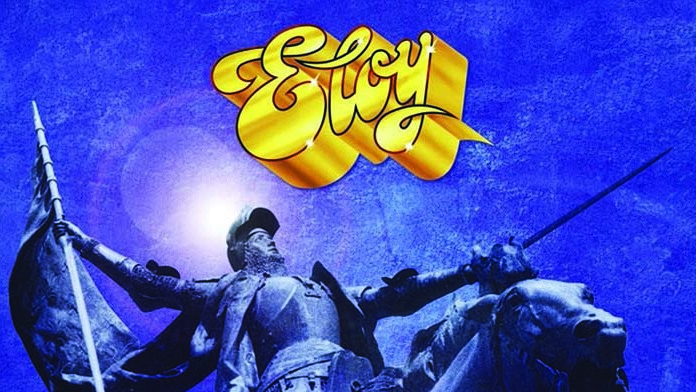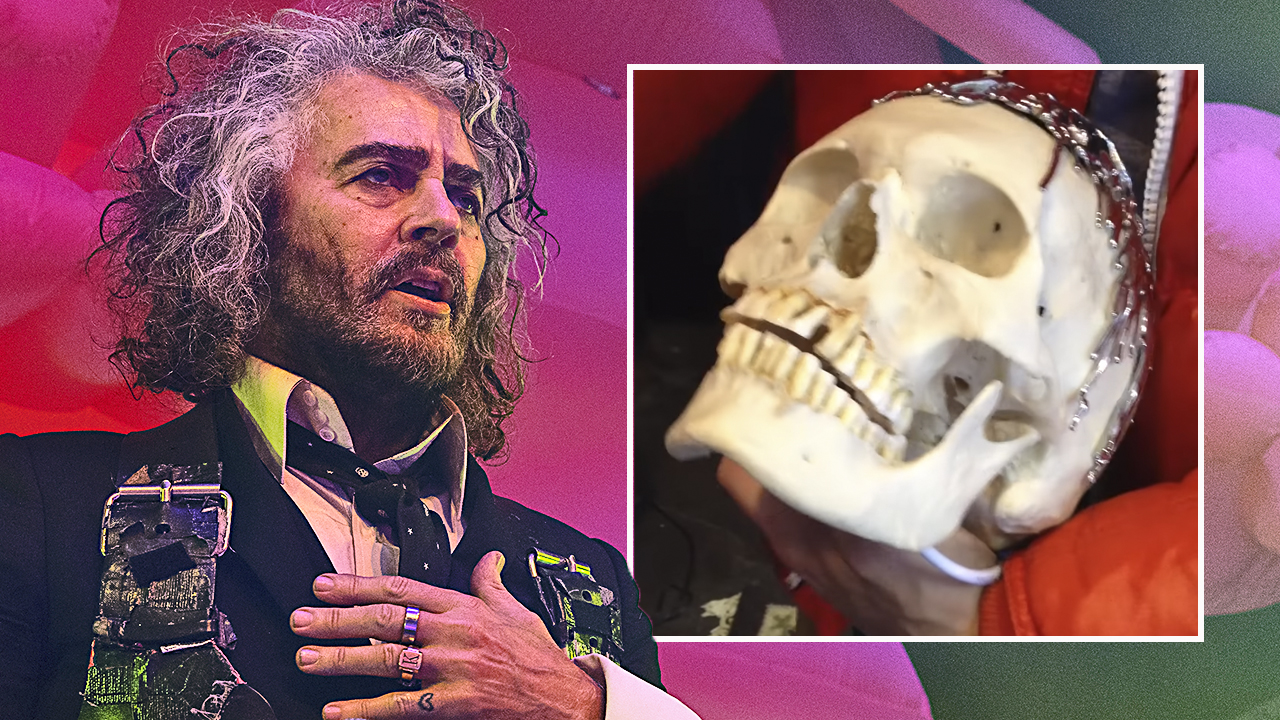You can trust Louder
Close to fifty years since founding, Eloy are now 72-year-old guitarist, producer and vocalist Frank Bornemann, plus a supporting cast. The German almost-legends were crackerjacks of symphonic rock and space rock in the 70s, big in their homeland, but never becoming card-carrying Krautrockers as they had more in common with British prog such as Camel, Floyd and Yes.
After a convoluted path through the decades, having attempted to go commercial before retreating, Eloy return with their first album in eight years. And despite being a no-holds-barred, historically researched concept album, it’s subtitled “Part 1”, so Bornemann is evidently born again.
The name ‘Eloy’ was taken from HG Wells’ The Time Machine, and this time Bornemann transports us to the medieval world of Jeanne D’Arc. The Vision, The Sword & The Pyre was originally conceived as a spectacular stage musical, but fear not, there’s no excess of sung dialogue and exposition. The historical figures do express themselves vocally, and there are spoken passages, but these are neatly woven into the overall texture and atmosphere. In fact, it’s remarkable how many disparate elements are crammed in, while the whole thing retains its feel as a forceful, sincere and entertaining rock album.
Guests include Canadian singer Alice Merton as Joan (or Jeanne) and German vocalist Jessy Martens. There are choirs and children. Again, though, the switching voices don’t lurch the record into rock opera or sub-The War Of The Worlds territory. All the paint stays within the corners of the canvas. The author has done his homework, studying the sainted Joan’s sufferings and becoming something of an authority on the subject. Indeed, heaps of info is included, and we’re led through her tale by a trusted comrade-in-arms, Jean de Metz.
All this impressive academia, however, mustn’t distract us from the merits of Eloy’s actual music. At its weakest, it’s just solid. At its best, it rumbles and soars. The Age Of The 100 Years War builds into some crunchy lock-grooves and there’s clever jump-cutting between heavy rock and a more 80s-style AOR. The Call, where grinding riffs and swirly keyboards mix is where things truly take off. The compelling 10-minute Chinon subverts its detailed arrangements and gets us joining in with those begging Joan to share her revelations. Orléans flirts with electronica while Les Tourelles revels in guitar lines that echo classic goth. The longer you stay in your seat, the more interesting this ride becomes. We all know things don’t end well for Joan, but Eloy seem to have landed in their own Indian summer.
Sign up below to get the latest from Prog, plus exclusive special offers, direct to your inbox!
Chris Roberts has written about music, films, and art for innumerable outlets. His new book The Velvet Underground is out April 4. He has also published books on Lou Reed, Elton John, the Gothic arts, Talk Talk, Kate Moss, Scarlett Johansson, Abba, Tom Jones and others. Among his interviewees over the years have been David Bowie, Iggy Pop, Patti Smith, Debbie Harry, Bryan Ferry, Al Green, Tom Waits & Lou Reed. Born in North Wales, he lives in London.


